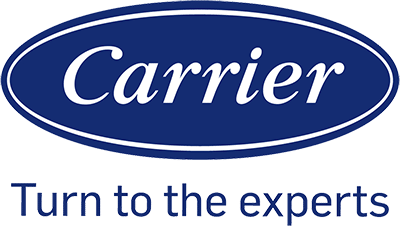
A heat pump serves as the heart of home climate control, providing both heating and cooling to ensure year-round comfort. Understanding the lifecycle of your heat pump is crucial not only for maintaining a comfortable home environment but also for managing expenses and ensuring energy efficiency. This guide will delve into the intricacies of a heat pump’s lifecycle, helping you discern whether to repair or replace your unit when the time comes.
Understanding the Heat Pump Lifecycle
What is a Heat Pump?
A heat pump is a versatile climate control system that transfers heat from one place to another using refrigeration technology. During colder months, it extracts heat from the outside air or ground to warm your home, and in warmer months, it reverses the process to cool your home by removing heat from the inside.
Average Lifespan of a Heat Pump
The average lifespan of a heat pump is typically between 10 to 15 years. However, this can vary based on the quality of the unit, the climate in which it operates, and how well it is maintained.
The Stages of a Heat Pump’s Life
The lifecycle of a heat pump can be categorized into several stages: installation, routine maintenance, peak performance, gradual decline, and eventual replacement. Each stage is critical and requires different levels of attention and care.
Maintenance – The Key to Longevity
Regular Maintenance Tasks
Routine maintenance tasks include cleaning or replacing air filters, checking and cleaning coils, inspecting ducts, and ensuring refrigerant levels are adequate. These tasks can significantly extend the life and efficiency of your heat pump.
Professional Servicing
Annual servicing by a professional can prevent minor issues from becoming major problems. Technicians can spot wear and tear, address small electrical issues, and ensure your system operates optimally.
Common Heat Pump Repairs
Identifying Common Issues
Common heat pump issues include thermostat malfunctions, frozen coils, strange noises, and inadequate heating or cooling. Recognizing these early can prevent more extensive damage.
DIY Repairs vs. Professional Repairs
While some minor issues like cleaning filters or resetting a tripped breaker can be handled by homeowners, most repairs should be entrusted to professionals to avoid further damage or safety risks.
When to Repair Your Heat Pump
Cost-Effective Repairs
Repairs that restore functionality without costing a significant portion of a new unit are generally considered cost-effective. This includes fixing wiring problems or replacing a faulty thermostat.
Signs That Your Heat Pump Can Be Repaired
If your heat pump is relatively young, still under warranty, or the cost of repair is less than a third of replacement, repairing is often the best route.
When to Replace Your Heat Pump
Beyond Repair – Recognizing the Signs
Signs that a heat pump may be beyond repair include frequent breakdowns, escalating energy bills, and an inability to effectively heat or cool your home.
Cost Considerations for Replacement
When repairs become frequent or the unit’s efficiency significantly drops, investing in a new heat pump can be more cost-effective in the long run due to lower utility bills and reduced repair costs.
Advances in Heat Pump Technology
Newer models offer greater energy efficiency, quieter operation, and smart home integration. Upgrading can provide not only improved comfort but also long-term savings.
Making the Decision: Repair or Replace?
Analyzing the Break-Even Point
Calculating the break-even point involves comparing the repair costs with the investment in a new unit, considering both immediate expenses and long-term savings on energy bills.
Environmental Considerations
An older unit may use more energy and contribute to higher carbon emissions. A new, efficient model can reduce your home’s environmental impact.
The Role of Warranties
A valid warranty can cover many repair costs, but if the warranty has expired, replacement might be more economical.
Deciding whether to repair or replace your heat pump is a significant decision that impacts comfort, expenses, and energy consumption. By understanding the lifecycle of your heat pump and recognizing the signs of wear and the potential benefits of a new unit, you can make an informed choice.
If you’re contemplating the repair or replacement of your heat pump, contact Weather Masters of Georgia. Our team of experts is ready to provide a thorough assessment and guide you to the right decision for your specific needs.
For more information on maintaining your heat pump or to explore the latest advancements in heat pump technology, visit the Weather Masters of Georgia website or get in touch with us directly. We’re dedicated to providing you with the best solutions and professional advice.




